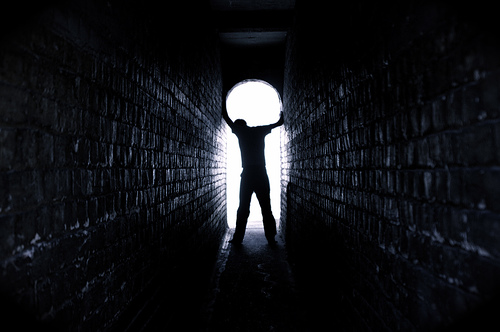Listen to the 7-minute podcast version
Watch a 1-minute introductory video
What causes addiction?
Good question. In search of answers, people have wondered whether addiction can be:
- A by-product of how they were raised, especially if they were abused?
- Triggered by circumstance such as divorce or moving to a new school?
- Caused by deep emotional problems or disorders?
- Wired into their DNA, or even a disease?
- A spiritual issue?
According to experts who study addiction, the answers to those questions—all of them—is, “Yes.”
But, even when those situations exist, the spiral into addiction is behavioral in nature. The steps in this journey may take months, years, or decades. When relapse occurs, it can happen in minutes.
But, there is reason to hope. Because, amazingly, the behaviors of recovery work much the same way, only in reverse!
Avoiding the Behaviors of Addiction
There is often a predictable progression in the descent into addiction. Understanding how this works helps us become more aware so that something can be done earlier rather than later. One way to envision this advancement in behaviors is as a series of steps:
Thoughts lead to Considerations to Attitudes to Actions to Addiction
- Thoughts – We increasingly obsess on SELF in a gradual, ongoing increase in self-absorption versus focusing on Service to others.
- Considerations – Slowly but surely, positive habits give way to negative ones, and we give little consideration to doing the things necessary to make daily Progress personally, emotionally, or spiritually.
- Attitudes – Our interactions with others become more marked by perceived hurts and resentments, which becomes a problem we attempt to soothe with isolation rather than feeling Empathy for what others are facing.
- Actions – Rather than being oriented toward taking positive steps forward toward personal Transformation, we lapse into denial by ignoring our negative issues and shifting blame to others.
- Addiction – We Surrender to our compulsive desires rather than to God, and we maintain self-destructive patterns that include bad choices, destructive habits, and outright disobedience.
And, if not addressed, these behaviors of addiction lead us inevitably into darkness.
Utilizing the Behaviors of Recovery
The good news is that we can reverse this progression in behaviors to lead us to recovery instead:
Move from Addiction to Actions to Attitudes to Considerations to Thoughts
- Addiction – In the midst of our powerlessness, we finally accept the fact that our life is out of control. We Surrender to God, and we begin to make wise choices again.
- Actions – A gradual increase in self-awareness helps us face our issues and mistakes more honestly as we begin to take steps along a road toward positive Transformation.
- Attitudes – We choose forgiveness and Empathy in our dealings with others and actively work to build positive relationships.
- Considerations – By taking intentional steps of Progress, we rebuild good habits and spiritual disciplines into our daily routines.
- Thoughts – As a result of our positive behaviors, God’s grace, and the benefits we see in our lives, we replace our absorption with SELF with thankfulness that leads to Service for others.
And these behaviors of recovery lead us from addiction to a life of peace, joy, and purpose.
Awareness of the Behaviors of Addiction Can Help
There are many things that can contribute to addiction. Often, we must take a holistic approach to deal with those issues by getting help from therapists, doctors, and spiritual mentors.
But, in most cases, there is a steady progression in our behaviors as well.
That knowledge, that self-awareness, can be life-changing. With God’s help, awareness allows us to deal with the emotional issues involved and become intentional about our behaviors.
As we battle the epidemic of addiction, we can apply this insight on behaviors in 2 important ways:
- Increase awareness of individuals to help them recognize their behaviors and take positive steps earlier rather than later.
- Communicate awareness to groups because any large group includes people in all of the stages of addiction and recovery.
The behaviors of addiction are an increasingly dangerous series of steps. But, with awareness, we can reverse that progression and improve not only our own life, but the lives of others as well.
Question: Do you feel that your pattern of behaviors is moving in a positive or negative direction?
Action: Use the behaviors of recovery to help you build a life with more peace, joy, and purpose.



